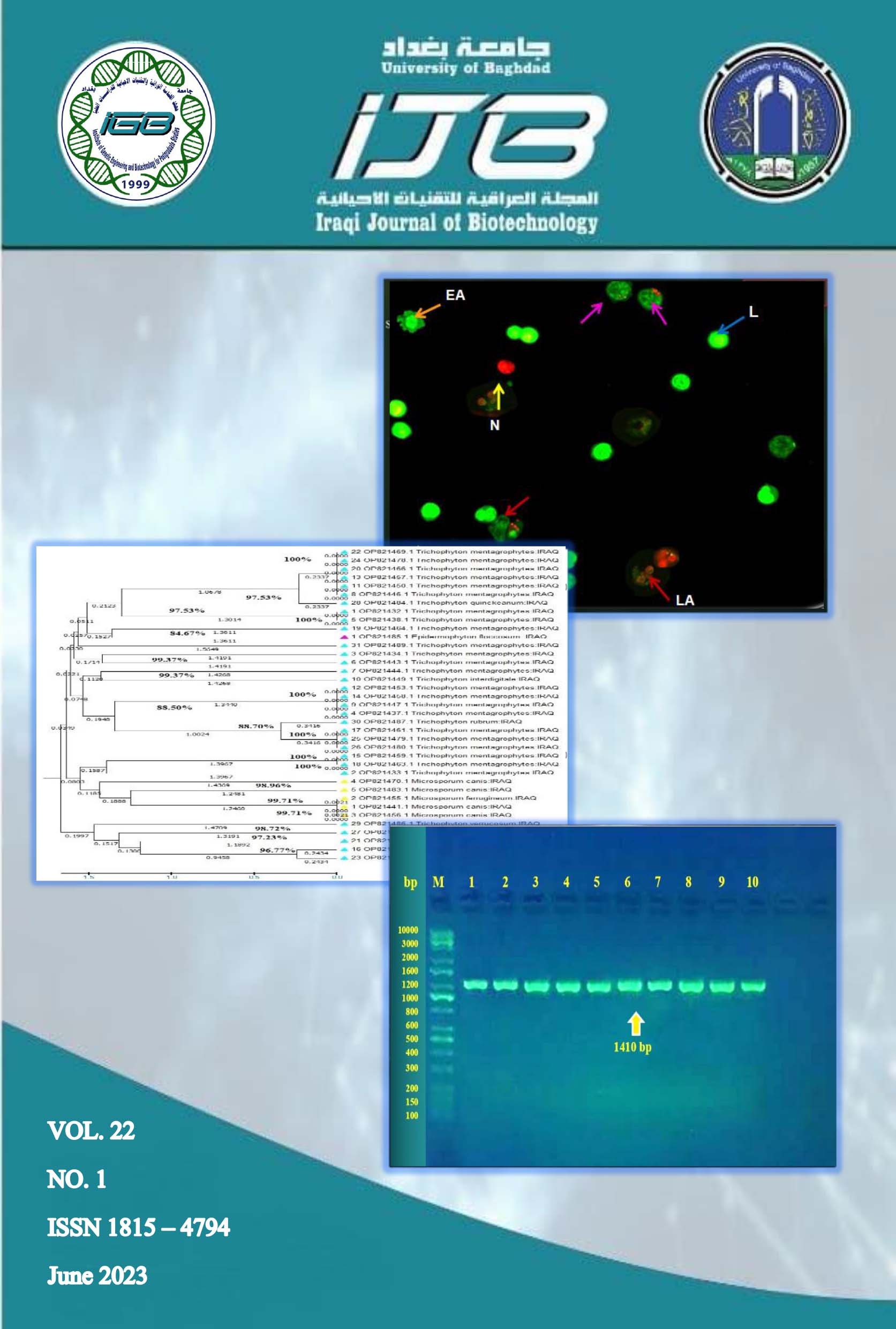Detection of FsrB Quorum-Sensing Gene and Biofilm Production in Enterococcus faecalis Isolated from UTI Women
Abstract
Enterococcus faecalis are Gram-positive responsible for a variety of infections in susceptible hosts, including endocarditis, bacteremia, urinary tract infections (UTI), and mouth infections, The adhesion of E. faecalis to host tissues, notably urinary tract infections, is a crucial phase in the pathogenesis of the organism. The aim of the study Detection of a FsrB Gene and Biofilm Production in Enterococcus faecalis Isolated. The patients with various age groups who had urinary tract infections were included in this study for collection 150 urine samples from (Baghdad Hospital of Medical City and teaching laboratories of Medical City) in Baghdad Between November 2022 and February 2023. Urine samples were cultured on differential culture media and the isolated bacteria were identical according to cultural characteristics, biochemical test and VITEK- 2 system also molecular method was used in the identification of bacterial growth. The results revealed 32 isolates were belonging to E. faecalis and this was confirmed through amplification of species specific gene (23SrRNA). All 32 E. faecalis isolates were subjected to further molecular analysis to check for the presence of the diagnostic biomarker FsrB gene, which is linked to the quorum-sensing system that regulates the production of gelatinas to control biofilm growth. The results showed that 26 (81.2%) E. faecalis possess fsrB gene. Biofilm producers was detected in E. faecalis isolates using microtiter plate method (MIC) which that the results indicated that 9 (28.12%) of bacterial isolates were strong biofilm production, 11 (34.375%) as moderate and 12 (37.5%) as week biofilm production. Antibiotic susceptibility of the bacterial isolates was examined against 22 types of antibiotics. Isolates showed resistance to Cefpodoxime, Eryrthomycin and Ceftriaxone (96.875%), while the lowest resistance (12.5%) was against Amikacin. According to our study, the spread of Enterococcus faecalis began to increase significantly compared to previous years. The study proved that Enterococcus faecalis were highly resistant to Cefpodoxime, Eryrthomycin and Ceftriaxone and highly sensitive to Amikacin. The study proved that all isolates were biofilm producers. Also The study proved that all isolates contain the 23SrRNA gene The current in vitro study demonstrats the presence of FsrB quorum-sensing gene.


